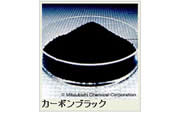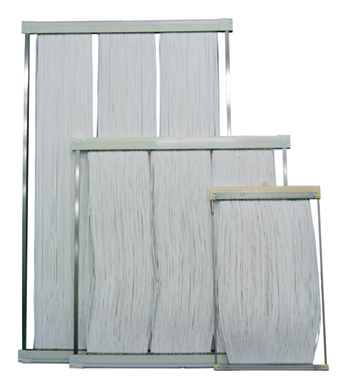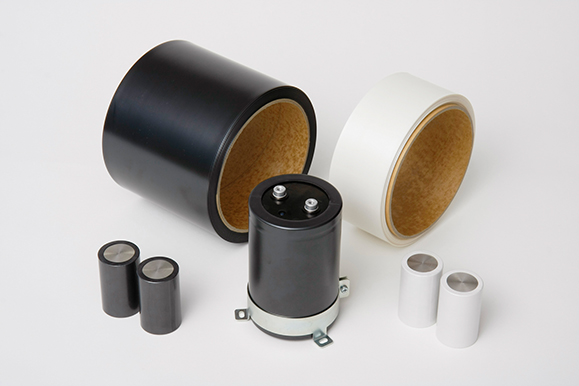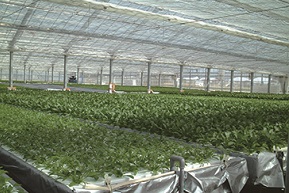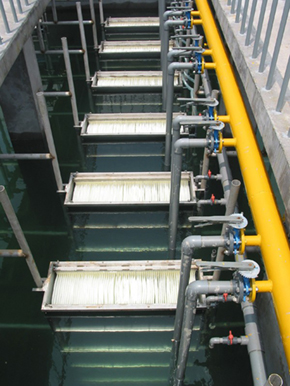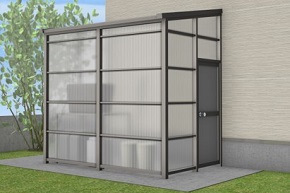Agriculture
324 products.
Filter by business area
[Close]
72 products.
[Close all]
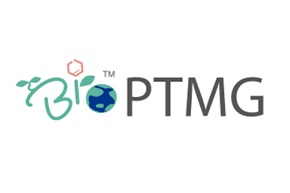
BioPTMG is a polyether polyol manufactured from plant-derived raw materials.
BioPTMG has the same performance as petroleum-derived PTMG as a raw material for polyurethane and polyester resins and has excellent impact, wear and hydrolysis resistance, flexibility at low temperatures, etc. Taking advantage of these characteristics, it can be used in a wide range of fields, from interior and fashion to industrial materials.
- Grades:
- BioPTMG650、BioPTMG1000、BioPTMG2000、BioPTMG3000
- Japan, Chemical Substances Control Law:
- (7)-129
- Japan, Poisonous and Deleterious Substances Control Law:
- Not applicable.
- Japan, Fire Services Law:
- Hazardous Material Class 4 Petroleums No.4 Hazardous Rank III(BioPTMG650)
Combustible Materials, Flammable Solids(BioPTMG1000, 2000, 3000)
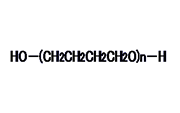
PTMG (Poly(tetramethylene ether)glycol / PTMG) is a linear polyether glycol with hydroxyl groups on both ends. As a polyol, it reacts readily with isocyanates (for example MDI, TDI), etc. to make resins with excellent properties.
- Grades:
- PTMG250、PTMG650、PTMG850、PTMG1000、PTMG1300、PTMG1500、PTMG1800、PTMG2000、PTMG3000、PTMG3200(developed grade in mass production)
- Japan, Chemical Substances Control Law:
- METI-No. 7-129
- Japan, Poisonous and Deleterious Substances Control Law:
- Not applicable.
- Japan, Fire Services Law:
- Hazardous Material Class 4 Petroleums No.3 Hazardous Rank III (PTMG250)
Hazardous Material Class 4 Petroleums No.4 Hazardous Rank III (PTMG650,850)
Combustible Materials, Flammable Solids (PTMG1000, 1300, 1500, 1800, 2000, 3000, 3200(developed grade in mass production))
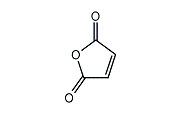
Maleic anhydride is produced by oxidation of benzene or a C4 hydrocarbon such as butane in the presence of a vanadium oxide catalyst. Maleic anhydride can be converted to maleic acid by hydrolysis and to esters by alcoholysis.
- EINECS: No. 203-571-6
- Japan, Chemical Substances Control Law: METI-No. 2-1101
- Japan, Industrial Safety and Health Law: Dangerous Goods and Toxic Substances Whose Names Should be Labeled and be Notified Appended Table 2-1978
- Japan, Poisonous and Deleterious Substances Control Law: Not applicable.
- Japan, Fire Services Law: Not applicable.
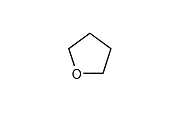
THF (Tetrahydrofuran) is a stable compound with relatively low boiling point and excellent solvency. It is widely-used for dissolution and reaction of various substances. Also it is used as a starting material for the synthesis of poly(tetramethylene ether) glycol (PTMG), etc. Since 1982, Mitsubishi Chemical's Tokai plant has produced high-purity, high-quality THF from butadiene using our proprietary technology.
- EINECS: No. 203-726-8
- Japan, Chemical Substances Control Law: METI-No. 5-53
- Japan, Industrial Safety and Health Law: No. 5-53
- Japan, Industrial Safety and Health Law: Dangerous Goods and Toxic Substances Whose Names Should be Labeled and be Notified Appended Table 2-1278
- Japan, Poisonous and Deleterious Substances Control Law: Not applicable.
- Japan, Fire Services Law: Hazardous Material Class 4 Petroleums No.1 (water-soluble liquid). Hazardous Rank II
- U.N. Class: 3
- U.N. No.: UN2056
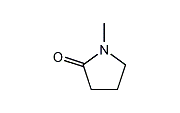
NMP (N-Methyl-2-Pyrrolidone) is a polar solvent with outstanding characteristics. It has a wide range of applications because it offers very high solvency, high boiling point, low freezing point, and ease of handling.
- EINECS: No. 212-828-1
- Japan Chemical Substances Control Law: METI-No. 5-113
- Japan, Industrial Safety and Health Law: No. 8-1-1014
- Japan, Industrial Safety and Health Law: Dangerous Goods and Toxic Substances Whose Names Should be Labeled and be Notified Appended Table 2-2108
- Japan, Poisonous and Deleterious Substances Control Law: Not applicable.
- Japan, Fire Services Law: Hazardous material Class 4 Petroleums No.3 (water-soluble liquid).
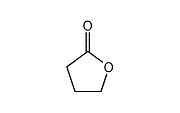
GBL has a wide range of practical applications because of its low freezing point, high boiling point, and a unique combination of solvent and electrical properties. It has applications as a solvent for special resins, in photography, in batteries, and as an electrolyte. Also a number of derivatives are synthesized from GBL.
- EINECS: No. 202-509-5
- Japan Chemical Substances Control Law: METI-No. 5-3337
- Japan, Industrial Safety and Health Law: No. 5-3337
- Japan, Industrial Safety and Health Law: Dangerous Goods and Toxic Substances Whose Names Should be Labeled and be Notified Appended Table 2-412
- Japan, Poisonous and Deleterious Substances Control Law: Not applicable.
- Japan, Fire Services Law: Hazardous material Class 4 Petroleums No.3 (water-soluble liquid).Aprotic, polar solvent.
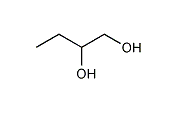
12BG (1,2-butanediol) is a branched glycol that has a primary hydroxyl group and a secondary hydroxyl group on adjacent carbon atoms. Mitsubishi Chemical Corporation offers two grades of purity. Both can be reacted with a dicarboxylic acid (e.g., phthalic acid or adipic acid) for use as a polyester polyol or a plasticizer, or reacted with an unsaturated dicarboxylic acid (e.g., maleic anhydride) for use as a raw material for unsaturated polyester resin. The high-purity grade 12BG is suitable for use as a solvent for inks and as a raw material for surfactants.
- EINECS: No. 209-527-2
- Chemical Substance Control Law (CSCL): METI-No. 2-235
- Japan, Industrial Safety and Health Act (ISHA): No. 2-235
- Japan, Poisonous and Deleterious Substances Control Act: Not applicable.
- Japan, Fire Service Act:Hazardous Materials, Category IV—Class III petroleums (water soluble liquids)
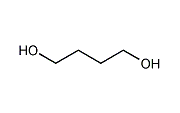
14BG (1,4-Butanediol) is a straight chain glycol with hydroxyl groups on both ends. It is used as a raw material for high performance polyester and polyurethane resins as well as for industrial chemicals like tetrahydrofuran and gamma-butyrolactone. Since 1982, Mitsubishi Chemical's Tokai plant has produced high-purity, high-quality 14BG from butadiene using our proprietary technology.
- EINECS: No. 203-786-5
- Japan, Chemical Substances Control Law: METI-No. 2-235
- Japan, Industrial Safety and Health Law: No. 2-235
- Japan, Poisonous and Deleterious Substances Control Law: Not applicable.
- Japan, Fire Services Law: Hazardous material Class 4 Petroleums No.3 (water-soluble liquid).
Polycarbonatediol, BENEBiOL™
[Close]
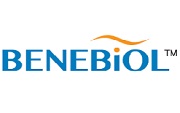
Polycarbonatediol(PCD) is a linear polycarbonate with hydroxyl groups at both ends. It easily reacts with isocyanate compounds(e.g. MDI, TDI, IPDI, H12MDI), and generates polymers with characteristics such as durability and chemical/hydrolysis resistance. BENEBiOL™ is the biomass-based PCD developed by our proprietary manufacturing technology. Because of “key monomer“ of each grade, polyurethane resins based on BENEBiOL™ will show an outstanding property level with regard to flexibility and chemical/stain resistance for example, in addition to the characteristics of conventional PCD. Besides, your product will be equipped with unique touch and feeling.Biomass-based polycarbonatediol with superior characteristics
Characteristics of polyurethane resins based on BENEBiOL™
non-edible raw material is used for some grades
transparency, stain resistance, chemical resistance, durability, toughness, weather resistance
flexibility, soft feel and touch, high hardness, good fit
FORZEAS™ is a compounding resin developed by Mitsubishi Chemical Corporation using biodegradable and bio-based BioPBS™ and other materials. Each grade has its own unique features and can be used in various applications.
FORZEAS™ can be flexibly formulated depending on customers’ requirements for performance and bio-degradable/bio-based certification.
Biodegradable Polymer, BioPBS™
[Close]
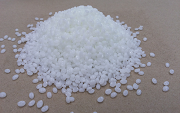
Polybutylene succinate (PBS) is the biodegradable plastic that decomposes into water and carbon dioxide with the microorganism under the soil. PBS has a high heat resistance among the general biodegradablility resin, and PBS has high compatibility with a fiber. Using these goodness, it's possible to achieve the performance which can't be shown by itself as the compound with other resin and material.duct life cycle.
NOVADURAN™ PBT resin has excellent electrical insulation performance, good chemical resistance, moldability. Taking advantage of these characteristics, it has been widely used as a material for automotive ,E&E, and high-performance film applications.
XANTAR™ PC has excellent transparency, impact resistance, flame reistance, heat resistance, electrical properties.
Taking advantage of these characteristics, it has been widely used as a material for automotive ,E&E,
and high-performance extrusion applications.
DIAPOL™-WMB is a composite material (wet masterbatch) produced by acid coagulation of SBR latex, carbon black and water slurry in an ultradispersion process. It is widely applied as a raw material for industrial products; water seals and gaskets; and tires and belts.
Rubber Carbon Black, DIABLACK™
[Close]
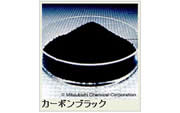
MITSUBISHI™ Carbon Black is a black pigment that has been used in a wide range of fields such as newspaper ink, printing ink, colored resin, paint, toner, colored paper, India ink, and ceramics.
Various grades of carbon blacks are available ranging from all- purpose grade to high-grade. In addition, our line of products includes industrial and environmentally-friendly carbon blacks.
- Carbon Black Association Handbook 3rd edition (Ref. 1)
- Carbon Black Association Annual Report No.75(2025)(Ref. 2)
Acrylic Sheet, SHINKOLITE™
[Close]

SHINKOLITE™ is the registered trade name of Mitsubishi Chemical's continuous cast acrylic sheet. Known as acrylic resin, this material has excellent weather resistance, stainability, and processability properties, and so is used in many applications such as signage, display, large water tanks, LCDs, and light guide plates. We will continue to leverage these properties and develop new products such as the flame-retardant and impact-resistant grades of SHINKOLITE. It is our goal to provide environmentally friendly products that make society safer and help people to have more comfortable and prosperous lives.
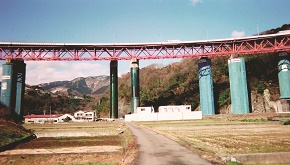
Compared with conventional steel plate or concrete-jacketed reinforcements, REPLARK simplifies construction and shortens construction period by eliminating the need for heavy machinery. For its high strength, lightweight, high durability, and excellent workability, REPLARK has earned an outstanding reputation for the repair and reinforcement of bridge piers, floorboards, columns, chimneys, and for other structural applications.
e-Plate/Leadline: This repair and reinforcement material enables reinforcement by simply attaching or embedding prefabricated carbon fiber reinforced plastics (CFRP), without the need for resin impregnation or for layering the required amount of reinforcement, as in the case of repair and reinforcement using carbon fiber sheets, thereby reducing construction time and improving construction quality.
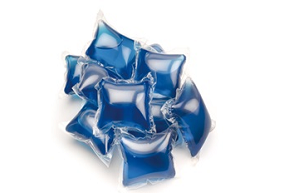
Water-soluble films developed by a specialist in chemical materials
HI-SELON™ is a water-soluble film made from polyvinyl alcohol.
With its excellent heat-sealing property and printability, HI-SELON™ is ideal for use as a packaging materials, but it also provides many other advantages, including high solvent resistance and barrier performance, which are used as materials for packaging of liquid detergent capsules.
Heat-Shrinkable Tube, HISHITUBE™
[Close]
Soaresin™
[Close]
Soaresin™ is used as a stabilizer or purging agent for extrusion.
Synthetic Paper , YUPO™
[Close]

"YUPO" is a synthetic paper made from polypropylene resin as its primary material. It offers extraordinary beauty, strength and flexibility. YUPO combines the advantages of both paper and plastic film, and thanks to its unique qualities, it is used widely in several fields, including the commercial printing, packaging and communication paper.
Terephthalate Plasticizer
[Close]
Phthalate Plasticizers
[Close]
Adipate Plasticizer
[Close]
Other Plasticizers
[Close]
Polycarbonate Sheet, HISHICARBO™
[Close]
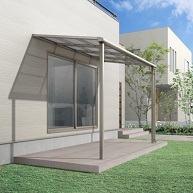
Designing comfort and safety of diversifying exterior applications
Our polycarbonate sheets for exterior use are an easy-to-use transparent material with excellent weather and shock resistance. For this reason, it can be bent for installation to fit sashes at room temperature, responding to sophisticated design needs. It also increases the flexibility of future structures as flame resistant roof material to direct sunlight into a house.
- Product Finder
-

